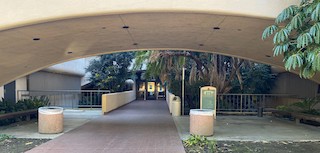It is pretty common for clients to tell us they want to go to court with us even when it is not required, i.e. at a misdemeanor pre-trial hearing.
Brief Synopsis: If one is not required to be in court because one’s attorney will appear for you, whether you should appear anyways should be discussed with your attorney. Sometimes, there are very good reasons not to appear, as the following article describes, as well as reasons when one’s appearance may help.
Often, the reason is because the client simply does not understand what takes place at the hearing and, once the client appreciates he or she would not contribute to the hearing, the client changes his or her intentions.
Sometimes, we believe the client has misplaced excitement in being part of the criminal justice system and wants to come to court just to experience the expected drama of what happens, even if it is an uneventful pretrial or arraignment that lasts less than thirty seconds and does not affect the eventual outcome of the case.
Other times, the client believes the judge or the DA will consider their personal appearance, especially if they are good looking or wear expensive clothes, and that this will persuade the judge or DA to give their case special handling.
Rarely, but occasionally, a client will want to be present to tell us what to argue, incorrectly believing each court appearance involves heated arguments, perhaps like is portrayed on TV (i.e. Judge Judy) or in movies.
Sometimes, the client wants to come to court with her or his spouse to let the spouse address the judge or DA and “set the record straight.” The client may also want to do this with a friend who is a witness to the alleged crime. We respect this, but caution such an imposition on the judge or DA when it is not expected could backfire on the client if the judge or DA does not have the time to properly consider what the witness wants to say.
In other words, expecting the judge or DA to spontaneously listen to such a person could be considered poor judgment, rude and self-centered, in effect confirming the impulsive nature of the crime and our client’s guilt (often regardless of what the spouse or friend states).
 San Fernando Courthouse
San Fernando Courthouse
Other times, the client wants to see if the judge is patient or impatient, liberal or conservative and how old the judge is. The client also wants to see how the prosecutor conduct himself or herself – mean, nice, patient or impatient? To find this out, we recommend that the client attend court on a day when his or her case is not being heard, so it is easier to observe the judge and prosecutor without the stress of believing the judge or prosecutor is evaluating the client in light of the charges the client faces.
Sometimes, too, the client is also keen to have a face-to-face conversation with the attorney about his or her case right there in court, immediately after the court appearance. We appreciate this, but often the time to do this does not exist because we often do have more than one appearance each morning.
This article is written for the client who insists upon being personally present in court because he or she does not trust the attorney, is curious about how the court proceeding works and simply wants the experience of going to court, or who actually believes the prosecutor will take note of the client’s good looks, earnest demeanor or respect for the prosecutor.
When this happens and the client does appear in court, we believe the client is doing himself or herself a disservice because the judge and prosecutor knows we are experienced attorneys who tell our clients to stay at work. If the client then refuses to follow this advice, the judge and/or DA will recognize that the client is rebellious, distrustful of us or someone who defies the advice of the person they hired for advice.
In short, we recommend that if the attorney advises the client that he or she does not need to appear, there is a reason we recommend this.
In discussing this issue with another local criminal defense attorney, his sarcastic comment was, “I just tell them that the judge won’t take a picture of them to put in the file.” This unsympathetic remark, however, is helpful insofar as the client should know that the judge and the prosecutor are often so busy handling 40 or 50 cases in misdemeanor court, so they just don’t have the time to appreciate how good, earnest or respectful a client looks and whether the case facts suggest the person looks otherwise.
Instead, the prosecutor is interested in handing over new discovery (i.e. a supplemental police report, a dash-cam video (also called an MVARS, or mobile video audio recording system) or a blood test result, speaking with police officers present in court, calendaring a trial date or discussing a plea bargain to resolve the case.
We add that our office very often submits a Defense Position Letter to the prosecutor with a good photograph of our client and that this method is more effective because the prosecutor can see the photograph in the context of the client’s explanation of the full case facts after viewing the client’s “Good Guy” or “Good Gal” packet in the prosecutor’s office, away from the hectic atmosphere of the courtroom.
Nonetheless, there is a time and place for when we do recommend a client comes to court even if not required. This is very rare and we would certainly tell the client in advance that even though he or she is not required to appear in court, we request he or she come to court.
Contact us.  San Fernando Courthouse
San Fernando Courthouse